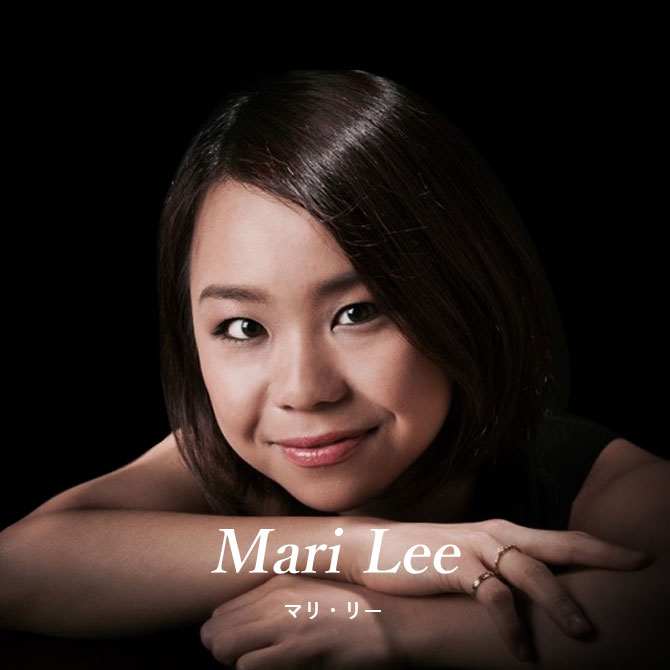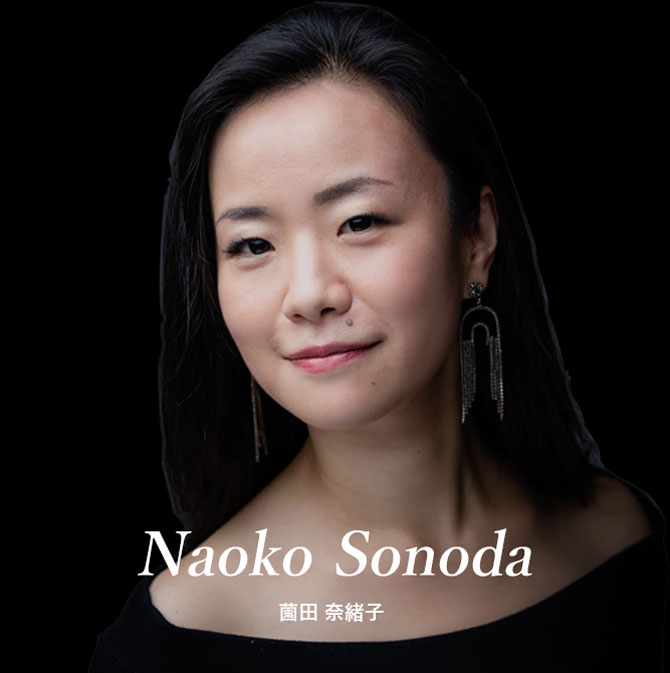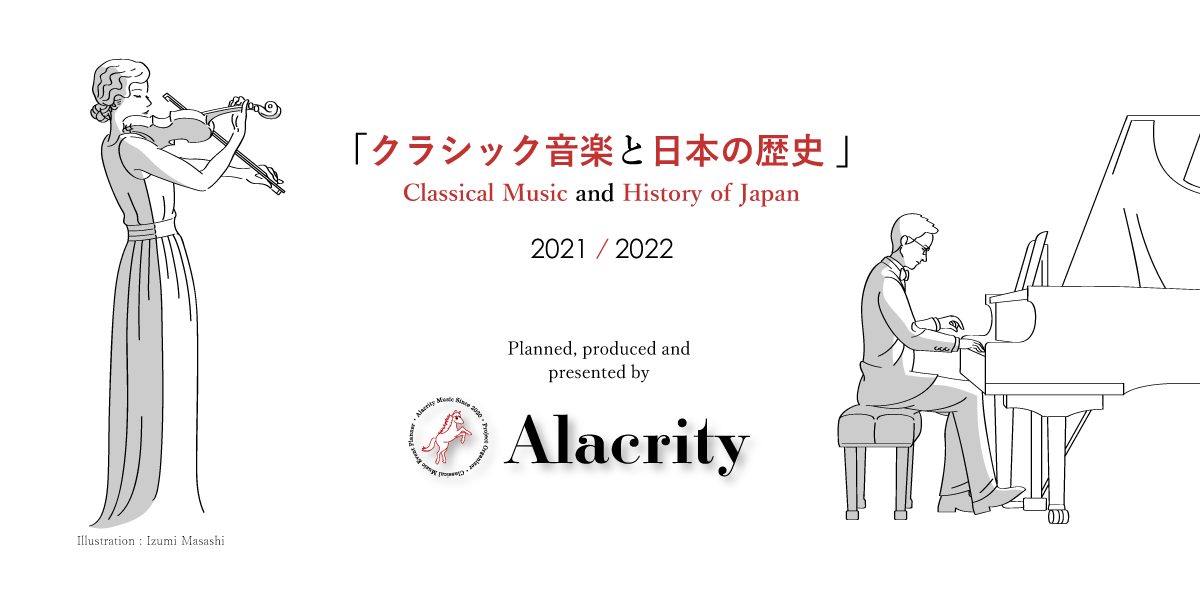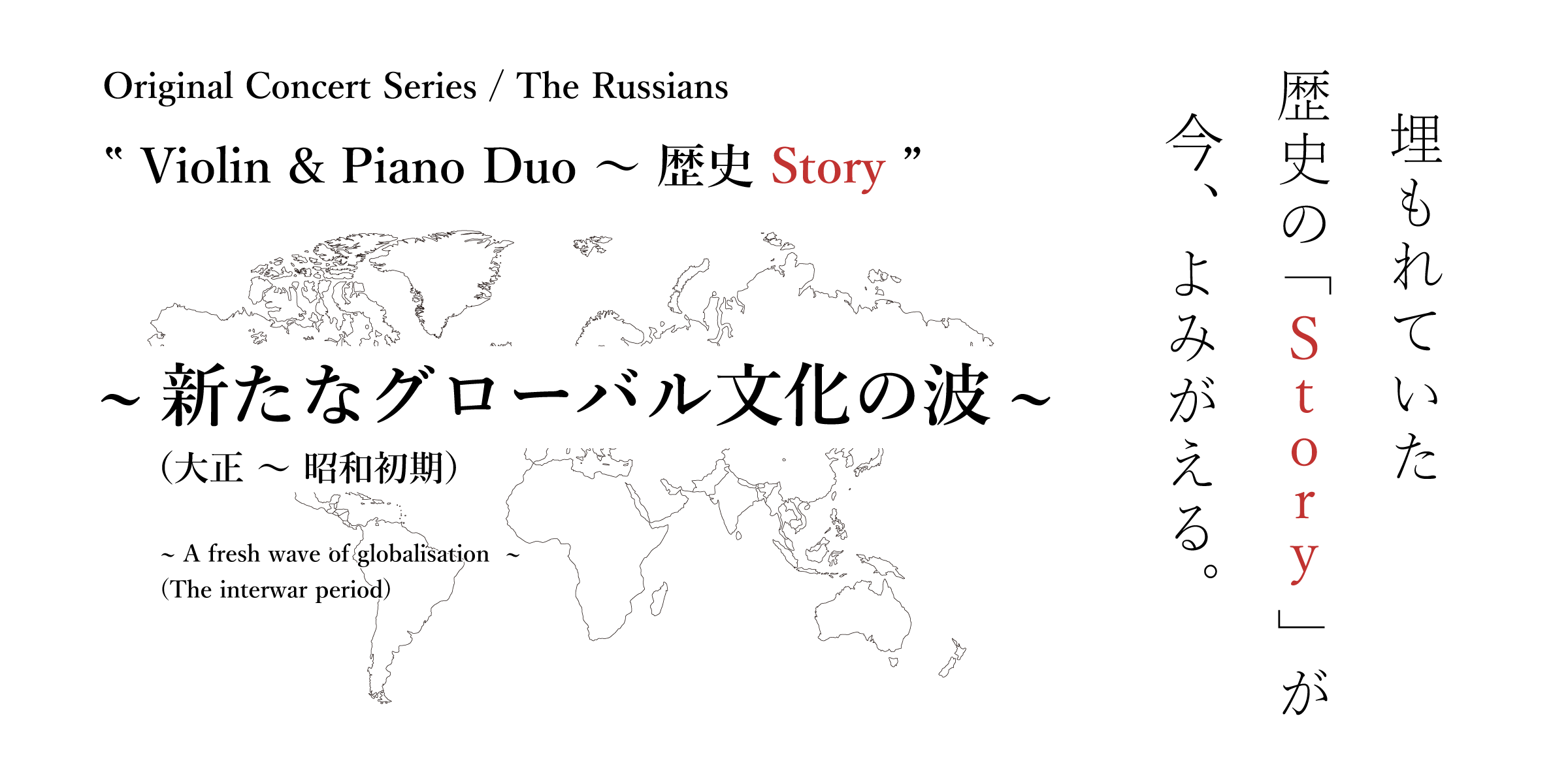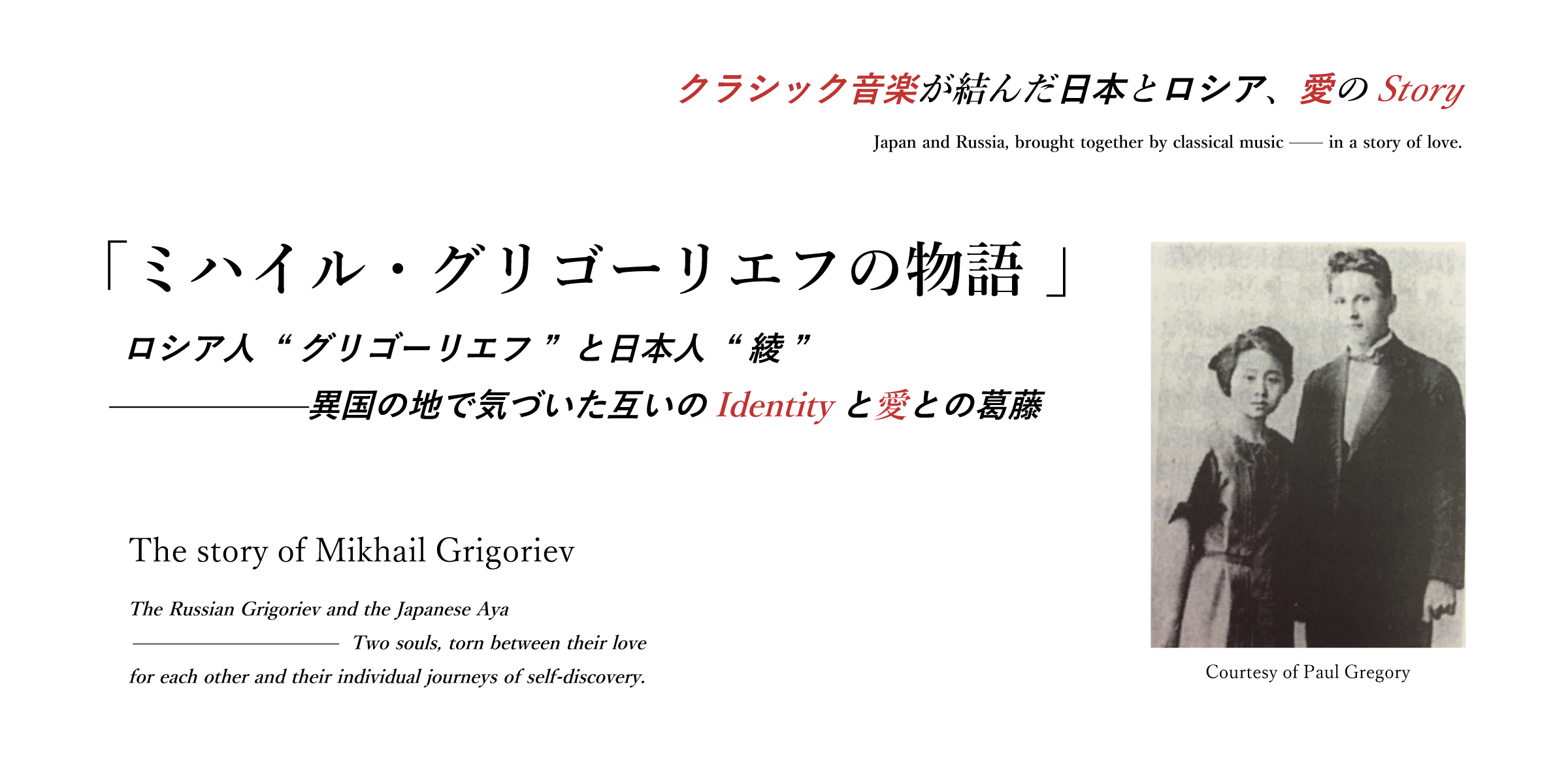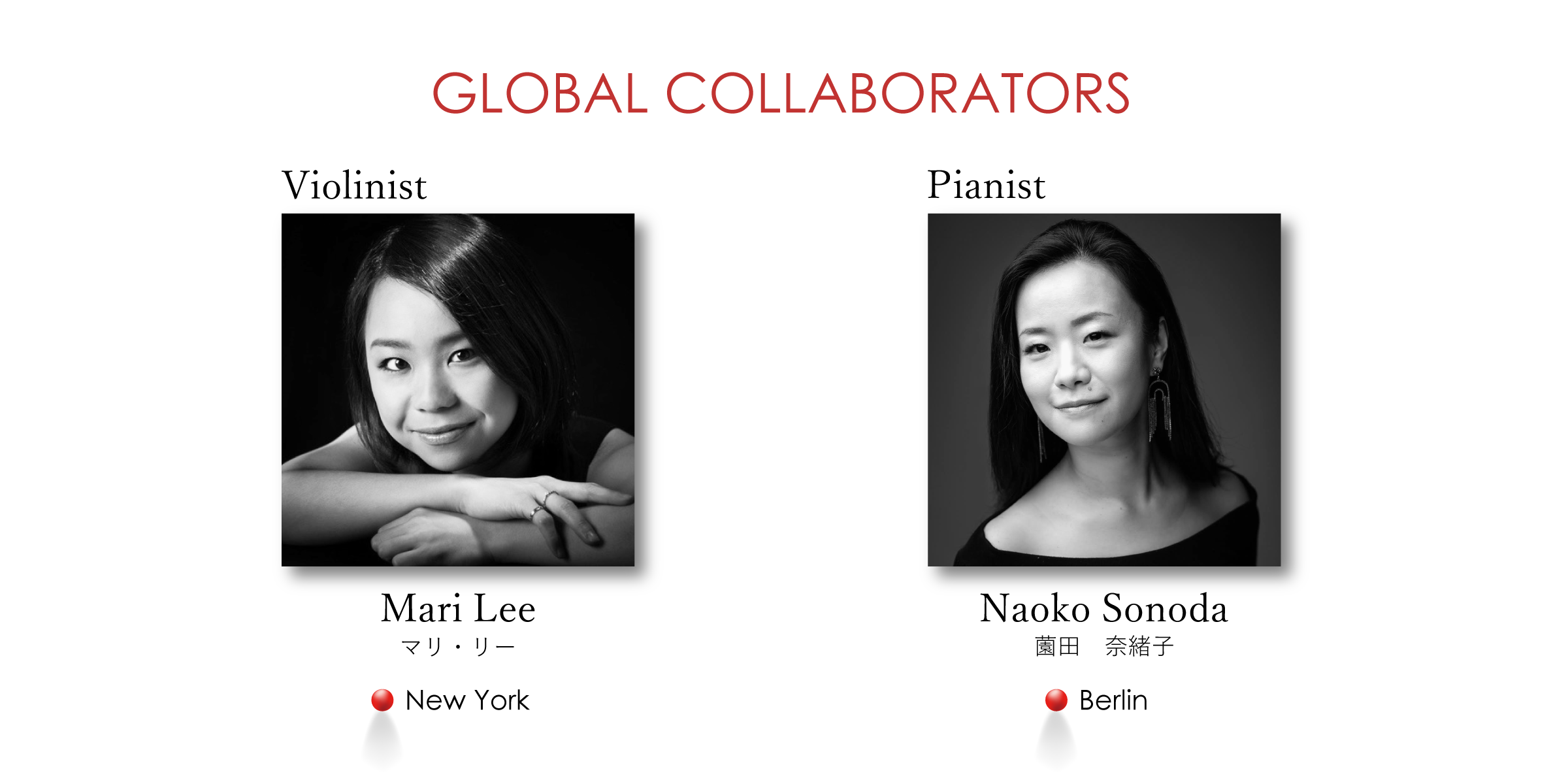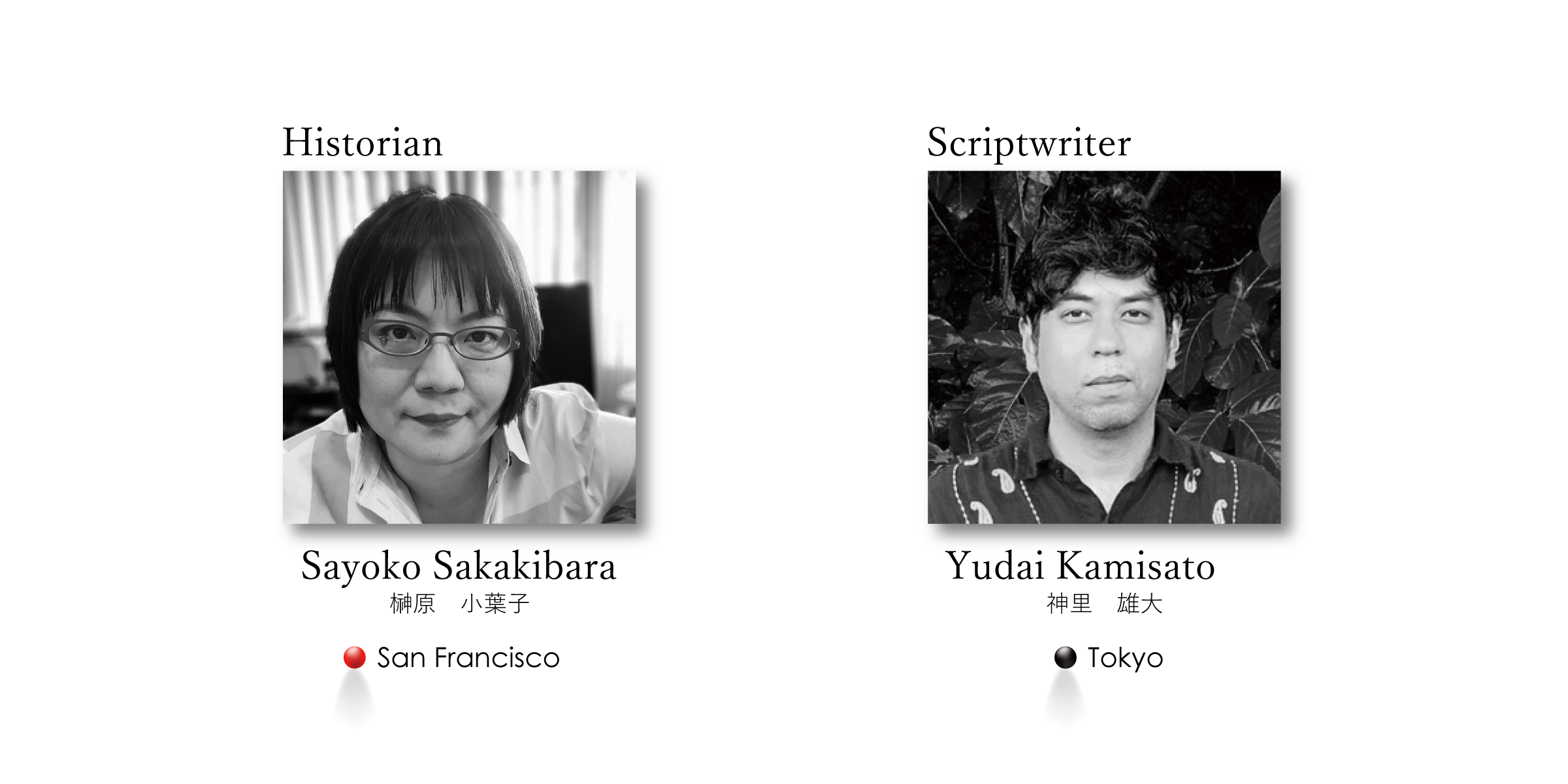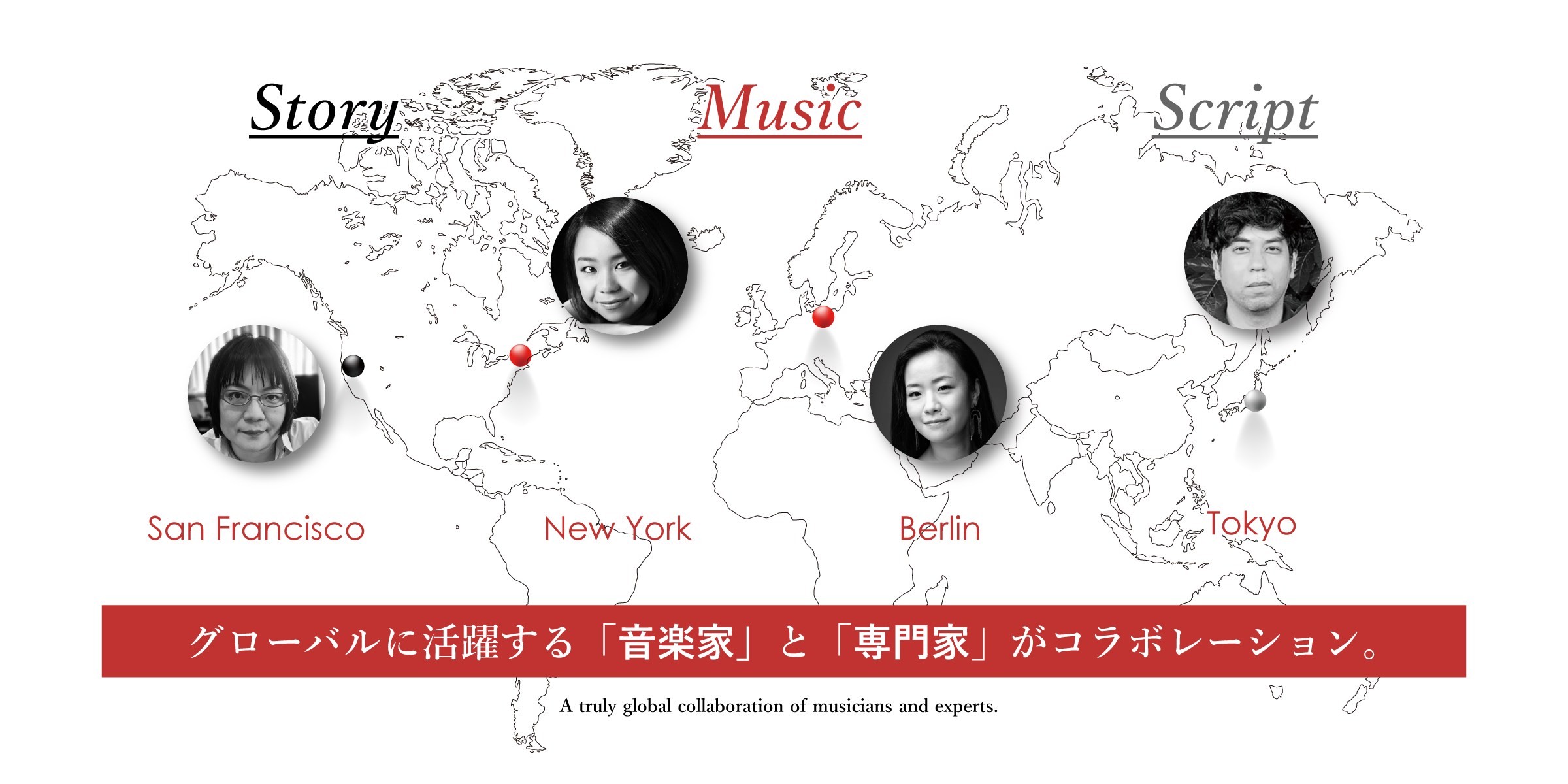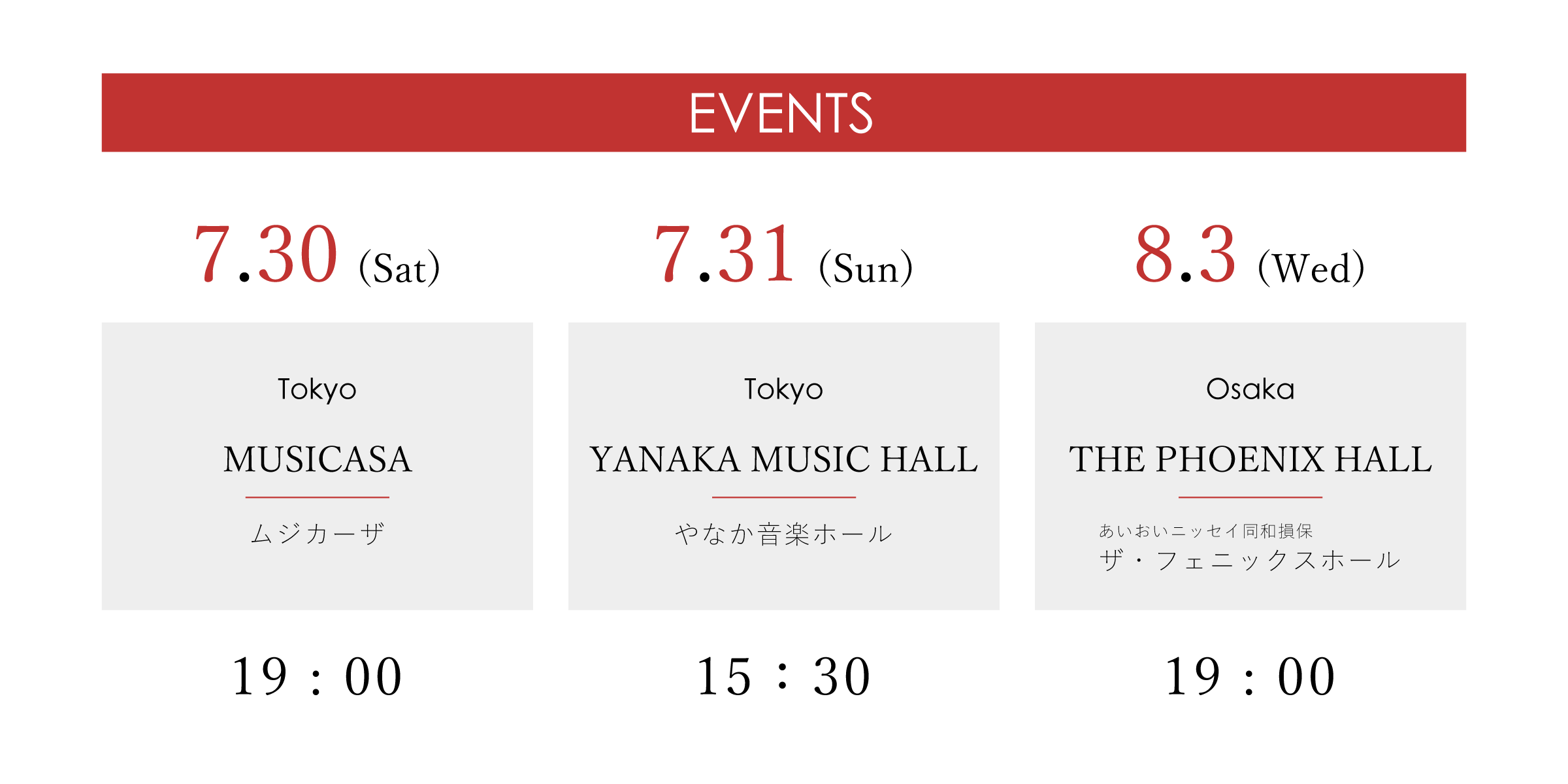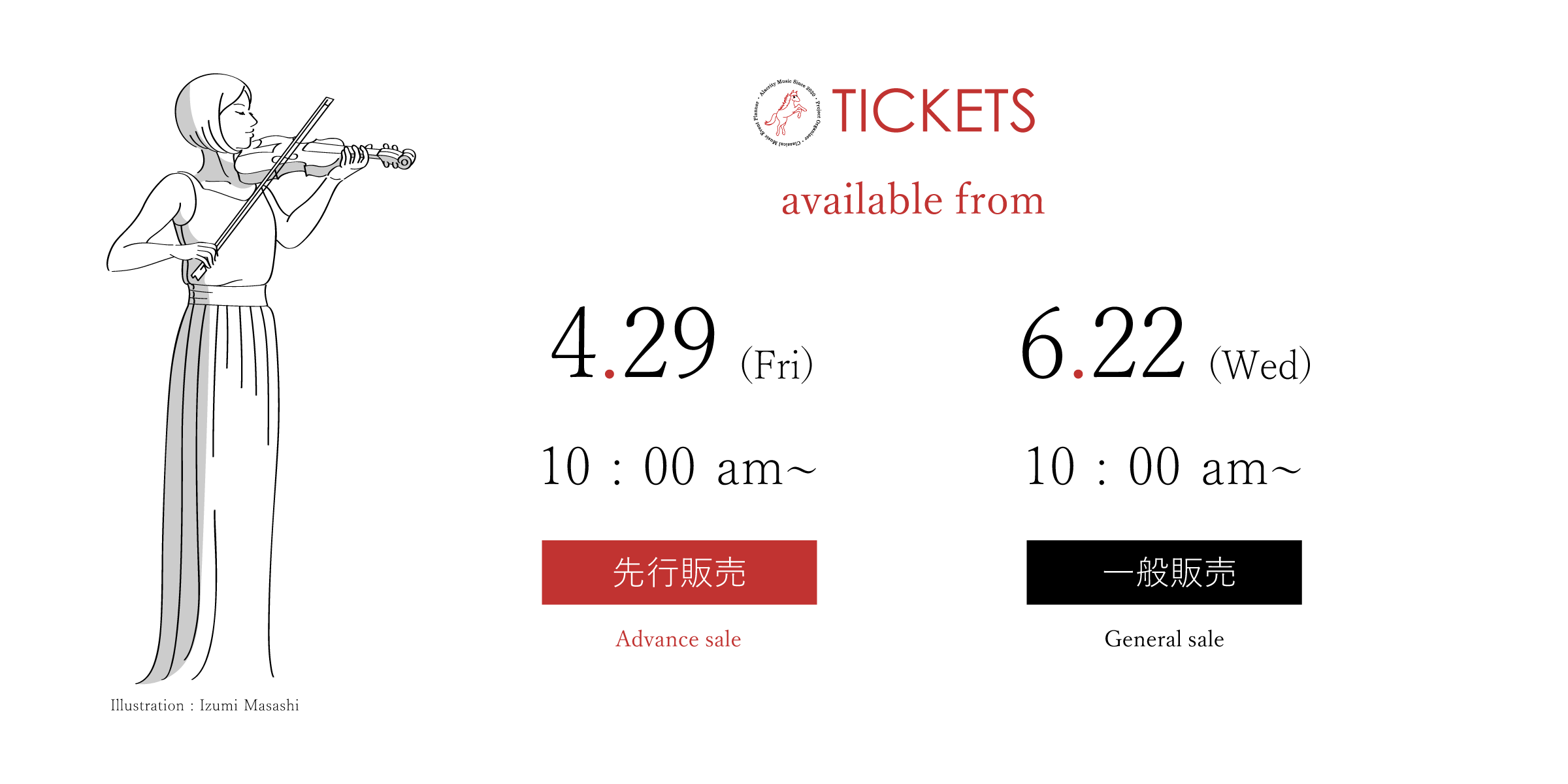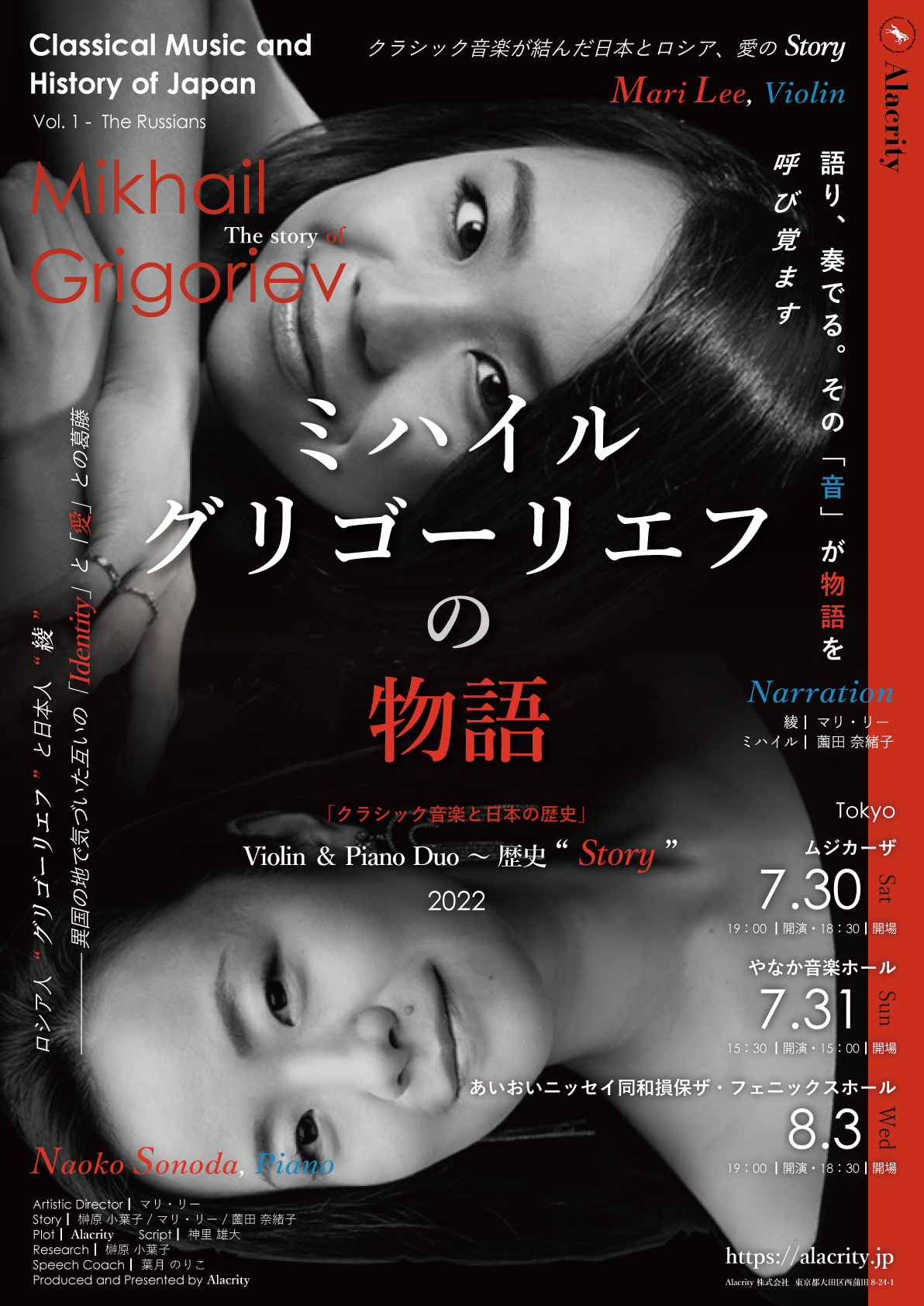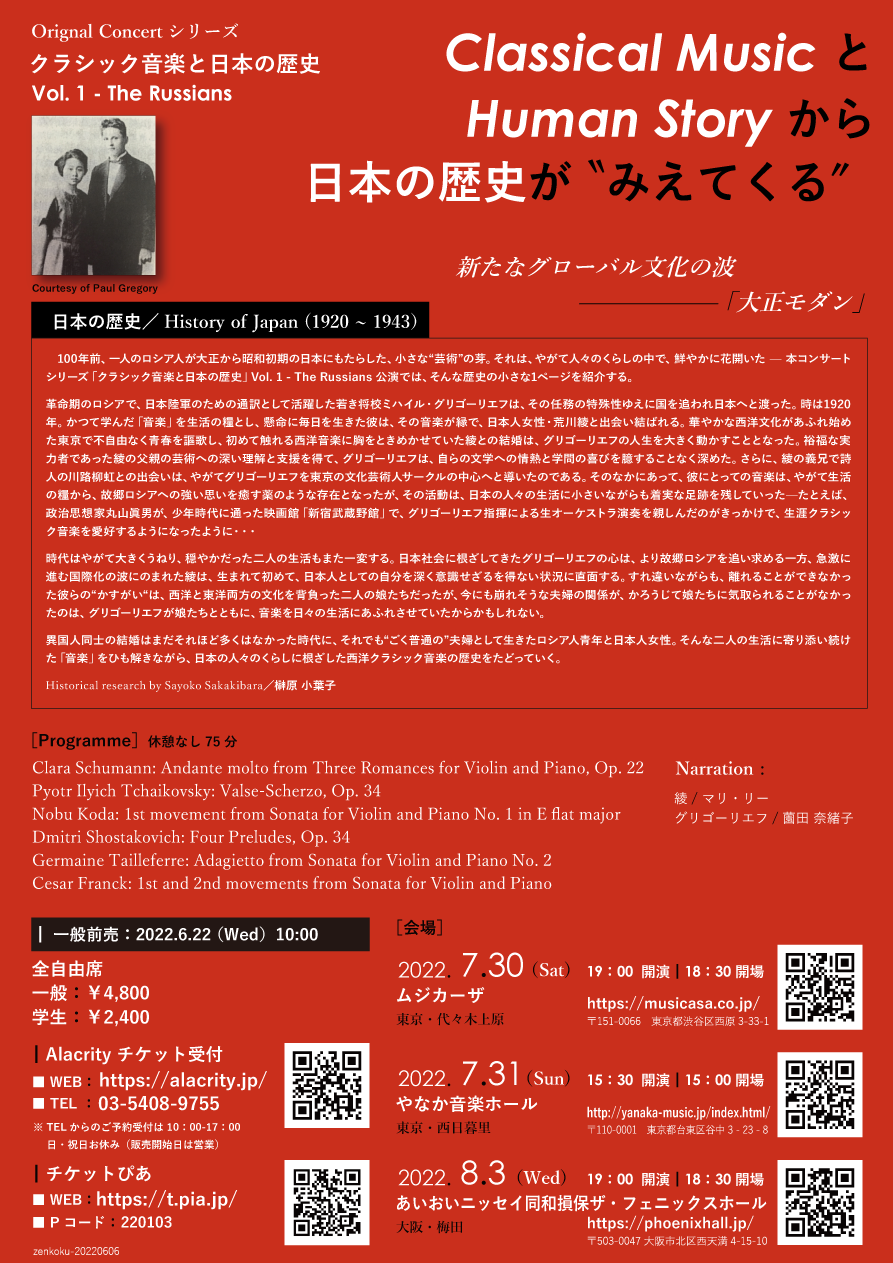EVENT
〉 21 / 22

クラシック音楽と日本の歴史
Classical Music and History of Japan
Vol. 1
Violin & Piano Duo ~ 歴史 ‟ Story ”
「ミハイル・グリゴーリエフの物語」
” The story of Mikhail Grigoriev ”
Concert Overview
クラシック音楽家は、過去の音楽を今、そして次世代へと伝えるメッセンジャーであるとともに、新たな時代の音楽と文化を創造する者たちでもある。過去を知り、今をより深く理解することが、新たな文化の創造へとつながる。それは、クラシック音楽家だけにとどまらず全ての現代人に共通する使命だといえよう。私たちが新たな時代の扉を開こうとする今、大正から昭和初期にかけて日本で生きたヨーロッパ人たちの「歴史Story」と彼らの文化であるクラシック音楽を通じて日本におけるグローバル化の原点を皆さまと共に考えていきたい。
新たなグローバル文化
「大正モダン」
クラシック音楽 / Classical Music
(明治から大正-昭和初期)
西洋化が急速に推し進められた明治の日本において、西洋クラシック音楽の役割は極めて大きかった。近代音楽教育が始まり、日本の音楽家養成を担う「外国人教師」たちが、ドイツ、オーストリアを中心とした欧米諸国から次々に招かれ、一気に西洋音楽への門戸は開かれた。とはいえ、初めは一般の日本の人々にとって、それは縁遠いもので、時折行われるようになった演奏会も、外国人教師ら一部の専門家のみを対象としていた。ところが、徐々に日本人演奏家が増えるとともに、西洋音楽は観客の裾野を広げ、やがて人々の生活の一部として定着していく。それにともない、もっぱらドイツ音楽が中心となっていた日本の音楽文化にも、新たな「グローバル文化の波」がやってくる。
明治末期から大正にかけての日本では、ドイツ、オーストリアだけでなく、フランスやロシアなど、ヨーロッパ各国の音楽が広く聴かれるようになっていった。それは、大正に入ると日本でもレコード制作が始まり、ラジオ放送もスタートしたことで、より多くの人々が、より手軽に幅広い音楽に触れることができるようになったからである。これにともない、ハイフェッツ、クライスラー、エルマン、ルービンシュタインといった、欧米のトップレベルの演奏家たちがわざわざ来日し演奏会を行った。やがて時代が進むにつれ、日本からもより多くの学生たちが、西洋音楽を学ぶべくヨーロッパやアメリカへと渡るようになったが、この時期に数多く育った日本を代表する作曲家たちは、西洋的なものを積極的に取り入れ、和洋折衷文化が花開いた大正モダン・昭和モダンの時代を象徴する存在となっていった。
本コンサートシリーズ「クラシック音楽と日本の歴史」第1回目の公演では、このような大正から昭和初期の「新たなグローバル文化の波」の中で、当時の人々が日々のくらしの中で親しんだ作品、欧米から来日した演奏家たちがレコード制作や演奏会で披露した作品、そしてこの時代の日本を代表するバイオリニストであり女性作曲家である幸田 延の作品の演奏と共に、同時代にロシアから日本へ亡命し、西洋音楽が縁で日本人女性と結ばれたロシア人「ミハイル・グリゴーリエフの物語」を語る。
-
-
During the Meiji era, Japan began importing Western technologies and culture at a rapid pace. Classical music was no exception. This period saw the introduction of musical education along Western lines and experts were brought in from abroad — mainly from Prussia and Austria-Hungary — to teach the first generation of classical musicians in Japan. Initially, however, this arrival made little impression on the life of ordinary people, since the few concerts that were organised remained an elite affair. But as the number of homegrown musicians grew, so did the opportunities for listening to classical music until, eventually, it became a staple of everyday life. Concurrent with this democratisation of classical music, what used to be an elite and German-centric culture also experienced a new wave of globalisation. As Japan transitioned from the Meiji to the Taishō era, not only German but also French, Russian and many other styles of music began to be heard in Japan. These developments were sped up during the Taishō era by the coming of the vinyl record and the radio broadcast, which made a wide range of music accessible to great swathes of the population. Due to this veritable boom in classical music, high-profile musicians from the West such as Heifetz, Kreisler, Ellman, Rubinstein were able to tour Japan. Soon, many from Japan were venturing abroad to study classical music in Europe and the US. The new generation of Japanese composers that came out of this experience incorporated Western influences and became representatives of the distinctive East-West fusion that flourished in the Taishō and Shōwa eras. In the first instalment of our “Classical Music and History of Japan” concert series, we will explore this new wave of globalisation through the performance of musical works that were popular at the time and through the story of one Mikhail Grigoriev, a Russian refugee who became involved with a Japanese woman by means of classical music.
-
日本の歴史/ History of Japan
(1920 ~ 1943)
「ミハイル・グリゴーリエフの物語」
ロシア人“ グリゴーリエフ ”と日本人“ 綾 ”
————— 異国の地で気づいた互いのIdentityと愛との葛藤
” The story of Mikhail Grigoriev ”
The Russian Grigorieff and the Japanese Aya
———— Two souls, torn betweentheir lovefor each other and their individual journeys of self-discovery.
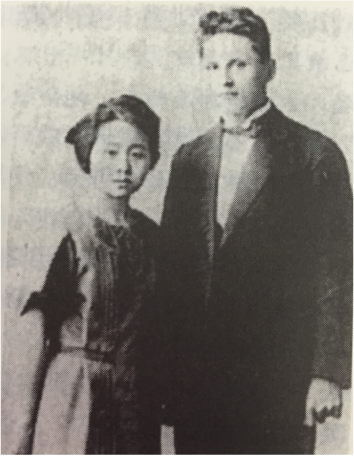
Courtesy of Paul Gregory
100年前一人のロシア⼈が、大正から昭和初期の日本にもたらした、小さな“芸術”の芽。それは、やがて人々のくらしの中で、鮮やかに花開いた— 本コンサートシリーズ「クラシック音楽と日本の歴史」第1回公演では、そんな歴史の小さな一ページを紹介する。
革命期のロシアで、⽇本陸軍のための通訳として活躍した若き将校ミハイル・グリゴーリエフは、その任務の特殊性ゆえに国を追われ日本へと渡った。時は1920年。かつて学んだ「音楽」を生活の糧とし、懸命に毎日を生きた彼は、その音楽が縁で、日本人女性・荒川綾と出会い結ばれる。華やかな西洋文化があふれ始めた東京で不自由なく青春を謳歌し、初めて触れる西洋音楽に胸をときめかせていた綾との結婚は、グリゴーリエフの人生を大きく動かすこととなった。裕福な実力者であった綾の父親の芸術への深い理解と支援を得て、グリゴーリエフは、自らの文学への情熱と学問の喜びを臆することなく深めた。さらに、綾の義兄で詩人の川路柳虹との出会いは、やがてグリゴーリエフを東京の文化芸術人サークルの中心へと導いたのである。そのなかにあって、彼にとっての音楽は、やがて生活の糧から、故郷ロシアへの強い思いを癒す薬のような存在となったが、その活動は、日本の人々の生活に小さいながらも着実な足跡を残していった—たとえば、政治思想家丸⼭眞男が、少年時代に通った映画館「新宿武蔵野館」で、グリゴーリエフ指揮による生オーケストラ演奏に親しんだのがきっかけで、⽣涯クラシック⾳楽を愛好するようになったように・・・
時代はやがて大きくうねり、穏やかだった二人の生活もまた一変する。日本社会に根ざしてきたグリゴーリエフの心は、より故郷ロシアを追い求める一方、急激に進む国際化の波にのまれた綾は、生まれて初めて、日本人としての自分を深く意識せざるを得ない状況に直面する。すれ違いながらも、離れることができなかった彼らの“かすがい“は、西洋と東洋両方の文化を背負った二人の娘たちだったが、今にも崩れそうな夫婦の関係が、かろうじて娘たちに気取られることがなかったのは、グリゴーリエフが娘たちとともに、音楽を日々の生活にあふれさせていたからかもしれない。
異国人同士の結婚はまだそれほど多くはなかった時代に、それでも“ごく普通の”夫婦として生きたロシア人青年と日本人女性。そんな二人の生活に寄り添い続けた「西洋クラシック音楽」と、日本のグローバル文化の発展に影響を与えた文化人たちの物語から、日本に西洋文化が取り入れられてきた歴史をたどる。
-
-
In 1920, a Russian refugee arrived on the shores of Japan to plant the first seeds of what would eventually alter the entire cultural fabric of Japan. This forms the backdrop to the first instalment of “Classical Music and History of Japan” a trilogy of Alacrity productions exploring the reception of Western classical music in the Japanese cultural consciousness.
In revolutionary Russia, a young officer by the name of Mikhail Petrovich Grigoriev worked as an interpreter for the Imperial Japanese Army. Due to the sensitive and confidential nature of his mission, he was ousted from the country and was compelled to go to Japan in 1920. In Tokyo, where he eventually settled down, Western culture was flourishing and being introduced ever more rapidly. Grigoriev lived from hand to mouth in this modernising city by — among other jobs — teaching and playing music, which he had once learned as a student in Russia. And it was through these music lessons that he met his future wife, Arakawa Aya. A Tokyoite who was brought up in a life of comfort, she was thrilled by the novel trends coming in from the West and eagerly joined Grigoriev’s small musical circle. This encounter changed their lives forever. Through the marriage, Grigoriev found opportunities to cultivate his talents as an artist and a scholar in the top cultural and artistic milieu of Japan, all with the support of Aya’s father and her brother-in-law, the poet Kawaji Ryuko. As he began to be recognised more as a scholar of literature, however, the role of music in his life changed from livelihood to consolation, something to soothe his longing for his country, for the Russia that no longer was. But Grigoriev maintained his activity as a musician throughout and with this he left a small but not insignificant footprint in Japanese society. In the meantime, Aya, who had converted to Russian Orthodox upon marriage and took on a new Russian name Vera Alexandrova, also experienced unexpected transformations in her life. With the generous support from her family, Aya raised two daughters in an international environment filled with Russian culture and classical music. This experience must have compelled her to grow a consciousness of what she was — a Japanese, a converted Russian Orthodox woman, and a wife and mother of musicians.
When Japan was embroiled in the global turmoil of war, the life of this international couple was turned upside-down. That was the time that both Grigoriev and Aya faced some critical difficulties that threatened their identity as Russian, Japanese and family. How did they face these difficulties, how did they survive? What allowed them to maintain their sanity in their precarious daily life was music, something which had by then become a staple of Japanese society at large.
By following the story of Grigoriev and Aya, which is also the story of classical music’s reception in Japan, we shall discover the very movement that led to the music of Beethoven and Bach becoming incorporated into Japanese popular culture and consciousness.
-
Historical research by Sayoko Sakakibara/榊原 小葉子
企画・制作 ・主催 Alacrity 株式会社
Artist
Program
クラシック音楽と日本の歴史
Concert シリーズ / ロシア人
Violin & Piano Duo ~ 歴史 ‟ Story ”
「ミハイル・グリゴーリエフの物語」
” The story of Mikhail Grigoriev “
クララ・シューマン:3つのロマンスより1番
Clara Schumann: Andante molto from Three Romances for Violin and Piano, Op. 22
ピョートル・イリイチ・チャイコフスキー:ワルツ・スケルツォ
Pyotr Ilyich Tchaikovsky: Valse-Scherzo, Op. 34
幸田延:バイオリンとピアノのためのソナタ第1番より1楽章
Nobu Koda: 1st movement from Sonata for Violin and Piano No. 1 in E flat major
ドミートリイ・ショスタコーヴィチ:4つのプレリュード
Dmitrii Shostakovich: Four Preludes, Op. 34
セザール・フランク:バイオリンとピアノのためのソナタより1楽章と2楽章
César Franck: 1st and 2nd movements from Sonata for Violin and Piano
ジェルメーヌ・タイユフェール:バイオリンとピアノのためのソナタ第2番より2楽章
Germaine Tailleferre: Adagietto from Sonata for Violin and Piano No. 2
セザール・フランク:バイオリンとピアノのためのソナタより3楽章と4楽章
César Franck: 3rd and 4th movements from Sonata for Violin and Piano
およびナレーション
約 70 分
■ 受付時間:10:00~17:00 (日曜・祝日 お休み)
公演に関するお問合せ・その他のお問合せは、
TEL または CONTACTフォームからお問合せください。


